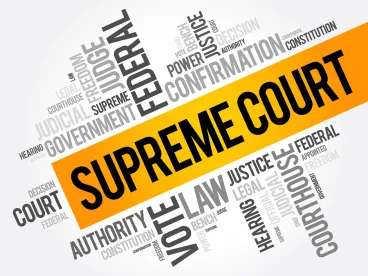On May 21, 2018, the Supreme Court of the United States settled the contentious class action waiver issue that has riled courts for the past six years. In a 5-4 opinion, the Court upheld class action waivers in arbitration agreements. Relying heavily on the text of the Federal Arbitration Act (FAA) and “a congressional command requiring us to enforce, not override, the terms of the arbitration agreements before us,” the Court ruled that the FAA instructs “federal courts to enforce arbitration agreements according to their terms—including terms providing for individualized proceedings.” The Court also reasoned that neither the FAA’s savings clause nor the National Labor Relations Act (NLRA) contravenes this conclusion. Epic Systems Corporation v. Lewis, Supreme Court of the United States, Nos. 16–285, 16–300, 16–307 (May 21, 2018).
Background
In January 2012, the National Labor Relations Board ruled in D.R. Horton, 357 NLRB No. 184 (2012) that employers cannot use class action waivers in arbitration agreements with employees covered by the National Labor Relations Act. The Board reasoned such waivers limit employees’ rights under the NLRA to engage in “concerted activities” in pursuit of their “mutual aid or protection.” That holding appeared to put the Board on a collision course with Supreme Court precedent under the Federal Arbitration Act approving class action waivers; however, the Board reasoned the Supreme Court’s prior cases had never involved the NLRA and didn’t apply.
Most federal courts disagreed with the Board’s reasoning. In fact, the Fifth Circuit (in an appeal handled by Ogletree Deakins) refused to enforce the Board’s D.R. Horton decision. Scores of lower federal courts subsequently refused to follow the Board’s ruling, citing the Fifth Circuit’s rejection of it. Two other courts of appeals, the Second and the Eighth, similarly spurned the Board’s view.
Undeterred, the Board invoked its policy of not acquiescing to federal courts lower than the Supreme Court and adhered to its position in Murphy Oil USA, Inc., 361 NLRB No. 72 (2014). The Fifth Circuit again refused to enforce that decision.
Although dozens of federal and state courts continued to reject the Board’s rationale as inconsistent with the FAA, recently two courts of appeals went the other direction, creating a circuit split. The Seventh Circuit became the first federal appellate court to agree with the Board in Epic Systems v. Lewis in May 2016. The Ninth Circuit followed suit in August 2016 in Ernst & Young LLP v. Morris, and, in 2017, the Sixth Circuit did so as well.
The six-year long standoff between the Board and most courts, and the more recent split between the Second, Fifth, and Eighth Circuits on one side and the Seventh, Ninth, and Sixth Circuits on the other, have left employers in a bind, as national and regional employers have found their practices subject to conflicting precedent depending on the circuit at issue.
On January 13, 2017, the Supreme Court agreed to take up the matter. With at least a half dozen petitions for certiorari pending on this class action waiver issue, the Court agreed to hear appeals in Murphy Oil, Lewis, and Morris. The Court also consolidated the three cases. On October 2, 2017, the Supreme Court of the United States heard oral argument in the three consolidated cases.
The Supreme Court’s Decision
After a thorough examination of the FAA and Section 7 of the NLRB, the Court concluded that “the law is clear: Congress has instructed that arbitration agreements [] must be enforced as written. While Congress is of course always free to amend this judgment, we see nothing suggesting it did so in the NLRA—much less that it manifested a clear intention to displace the Arbitration Act.” The Court considered the argument that the FAA’s savings clause—which allows courts to refuse to enforce arbitration agreements “upon such grounds as exist at law or in equity for the revocation of any contract”—creates an exception on the basis that the NLRA renders class and collective action waivers illegal. Justice Gorsuch, relying on the Supreme Court’s 2011 AT&T Mobility LLC v. Concepcion decision, reasoned that this argument is flawed. The savings clause permits courts to invalidate agreements on the basis of contract defenses such as fraud and duress, the Court ruled, and not, citing Concepcion, on the basis of “defenses that apply only to arbitration”
The Court also rejected the argument that class action waivers are invalid under Section 7 of the NLRA. According to Justice Gorsuch, “[t]he notion that Section 7 confers a right to class or collective actions seems pretty unlikely when you recall that procedures like that were hardly known when the NLRA was adopted in 1935.” As a result, the Court reversed the judgments in Epic Systems and Ernst & Young and remanded the two cases for further proceedings consistent with the Court’s opinion. The Court also affirmed the judgment in Murphy Oil.





 />i
/>i

